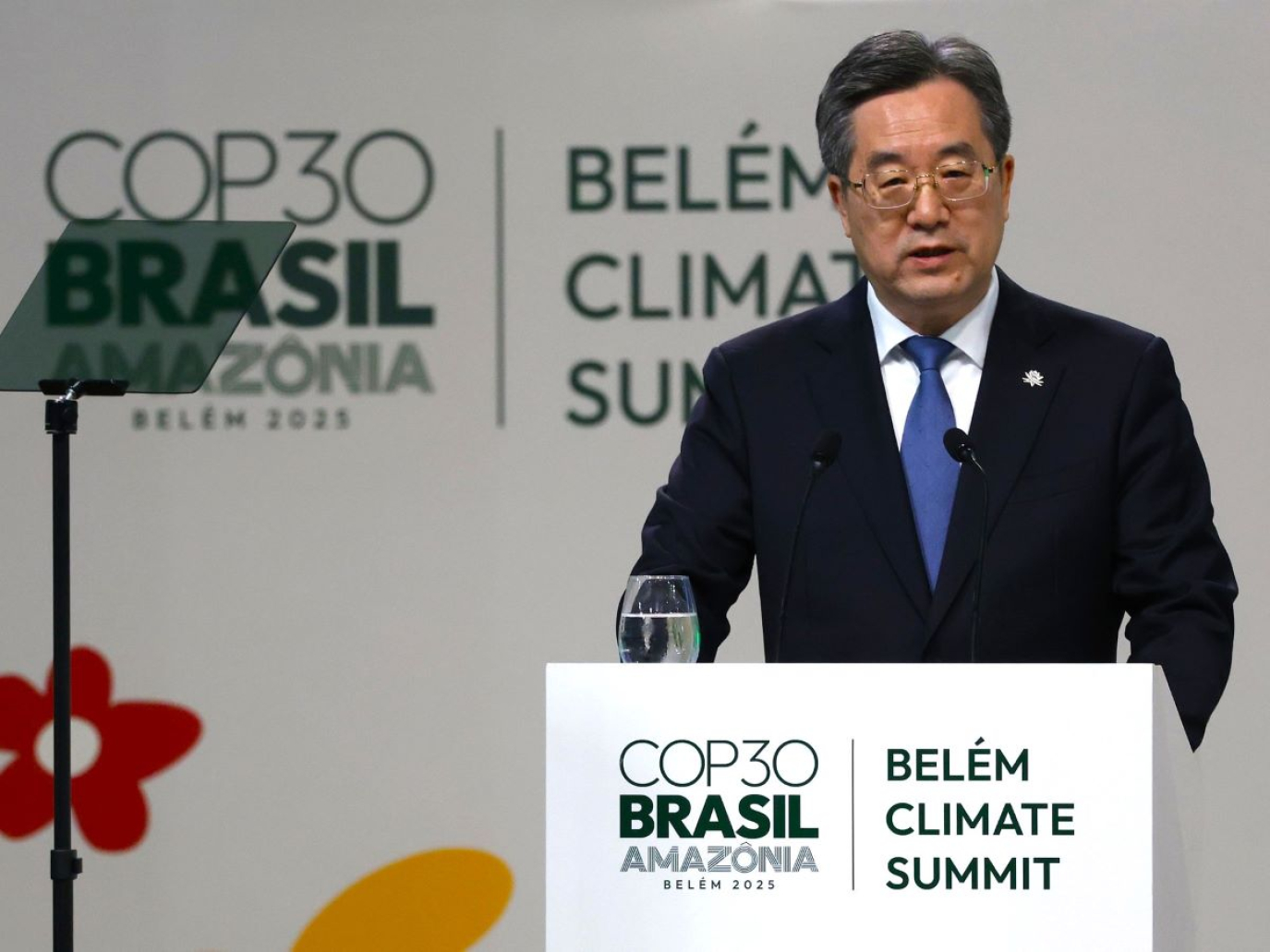
From Belém - At COP30 in Belém, global trade was for the first time explicitly included in climate negotiations. It was inevitable: the transition is no longer just a matter of climate diplomacy within the UNFCCC, but also economic competition.
In the early days of COP30, a China-led group of countries, together with India and Saudi Arabia, pushed for a discussion on “unilateral trade measures” to be included on the COP agenda. The not-so-veiled reference points to the European Carbon Border Adjustment Mechanism (CBAM), the tool employed by the EU to, starting from 2026, apply a carbon price to imported products equivalent to that imposed on European industries by the ETS (the European Emissions Trading System).
Steel, aluminium, cement, fertilisers, electricity and hydrogen will be the first sectors involved. For Brussels, the measure is aimed at preventing carbon leakage (the relocation of production to countries with no or fewer emissions restrictions), as well as preventing European companies that invest in the transition from being penalised compared to foreign competitors that do not pay the cost of emissions.
Nevertheless, in a world where transition value chains are global, every national measure has geopolitical repercussions, and indeed, for many, the CBAM is a threat. In Bonn, the site of the interim negotiations, China had already protested that the European measure would “circumvent” the Paris Agreement and the principles of international trade. In Belém, Beijing reiterated that such measures would violate the principle of common but differentiated responsibilities. To put it simply, developing countries cannot be treated like advanced ones, and imposing a European carbon tax on them means placing disproportionate costs on economies that are still building their industrial base.
This argument is echoed in the G77 (a negotiating group comprising over 130 developing countries), where many are concerned about the possible proliferation of similar mechanisms, which risk further undermining the competitiveness of emerging economies. This fear is valid, but the most effective response would not be to halt these mechanisms, but rather to discuss how to make them interoperable and transparent at the multilateral level.
There is also a rarely noticed contradiction. On one side, Beijing is the manufacturing powerhouse of transition technologies (so-called clean tech), dominating solar panels, batteries, electric vehicles and components, and is electrifying transport and power generation faster than any other country. An increasing number of analysts describe it as an “electro-state”, capable of driving the global spread of clean technologies and bringing down their costs. On the other side, this leadership coexists with an industrial sector still heavily linked to primary production in steel, cement and aluminium, in other words hard-to-abate sectors, with much slower transformation time than energy and transport.
Yet several countries, including China itself, acknowledge that the CBAM is exerting positive pressure towards the introduction of domestic carbon pricing instruments. Brazil, Japan, South Korea and others are developing or expanding ETS systems specifically to retain revenue and ease the burden on their exporters. Beijing also admits, in the negotiating corridors, that the European mechanism has helped to accelerate the construction of its national carbon market, albeit still limited and with prices remaining about ten times lower than in Europe.
Tensions were so high that the Brazilian presidency had to intervene to prevent COP30 from turning into a trade tug-of-war. Brazil insisted that the conference should remain focused on climate commitments, not tariff disputes, stressing the potential of trade as a vehicle for spreading green technologies. To channel the debate, Brazil launched a new forum based in Geneva, intended to link climate and trade without overlapping with the World Trade Organisation (WTO), in an attempt to prevent tensions from escalating in the midst of the climate summit.
The fundamental question, however, remains open: is it really possible to tackle the energy transition without rethinking the rules of international trade? COP30 has demonstrated that we have entered a new phase: climate diplomacy is no longer just about emissions targets and finance, but about rewriting the global industrial pact. Ignoring this is not an option. If trade becomes a battleground, we risk slowing down the very transition that we should be accelerating.
Also read: BRICS at a crossroads: mutual recognition or Article 6?
Cover: Ding Xuexiang, Vice Prime Minister of China, in his opening speech at the COP30 Leaders' Conference. Photo Isabel B./COP30



